What an odd, offbeat little gem—arch, ironic and satiric, but also sad and humanist, all wrapped up in an 18th-century vampire tale. The movie is based on an 1839 book, The Family of the Vourdalak, written by Russian author Aleksey Konstantinovich Tolstoy in French. The plot is relatively simple. A French aristocrat loses his horse and carriage in a robbery in the Serbian countryside. He is pointed to a peasant family that might provide him a horse to return home. However, the household is wrestling with their own issues as the patriarch, despite his advanced age, takes off to fight the Turks. When he returns, he is… er… not quite the same.
The book was written about 60 years before Dracula and is somewhat interested in some of the same themes. Here though, the aristocrat, Jacques, isn’t sucking the world dry. He isn’t even the villain. He is clueless as to the realities of life outside the court and astonished by the family’s habits and superstitions. Jacques is played with a perfect combination of haughtiness, naivety, and innocence by Kacey Mottet Klein. He is nonplussed by this odd rustic family, while they are amused and contemptuous of his wig and powdered face.
Meanwhile, Jacques falls hard for Sdenka (a fantastic Ariane Labed, who may as well be channeling Stevie Nicks), the daughter of the missing patriarch, Gorcha (voiced by director Adrian Beau). There is also the hulking son Jegor (Grégoire Colin); his wife, Anja (Claire Duburcq); their son, Vlad (Gabriel Pavi); and finally, Jegor and Sdenka’s younger brother, the effeminate Piotr (Vassili Schneider). As Jacques waits for Gorcha to returns so that he gets his horse, he goes about attempting to seduce Sdenka, who has all his numbers.
When Gorcha returns though, the movie starts moving into darker, more bonkers, territory. You see, Gorcha left a note: If he is gone for more than six days, his family is to never let him back in, all because he knows he will have become, of course, a vampire, here called a vourdalak. In this iteration, a vourdalak attacks the ones he loves, not just physically but psychologically. Gorcha does indeed return, but his family opens the door to him, allowing him to the dinner table, which creates all sorts of problems.
Up until this moment, The Vourdalak feels a bit like a knowing, sophisticated indie horror film. The cinematography is beautiful, the dialogue is sharp. Even with a limited budget, the sense of place is exquisite. And then Gorcha arrives, and we see… a puppet. An obvious a puppet—a macabre, skeletal looking thing, rail thin with bulging eyes in a sallow skull. There is barely an attempt to sync the sound with the movement of the puppet’s mouth. It’s impossible to take seriously, but his appearance manages to dip the film into a far more interesting area. Think of a more mannered Ken Russell or whacked-out, gory Hammer horror.
All this would be a goof if The Vourdalak descended into camp, but thankfully, it does not. Instead, it doubles down on its themes and the emotional lives of its characters. The peasant family is trapped in a cycle. They are forced through their traditions and upbringing to obey the patriarch, even when said patriarch is undead. Rebellion is also quickly snuffed out. As for Jacques, he manages to see past himself and truly care about the family and, for all the jokes made at his expense by the family, he discovers his resilience and bravery.
Beau has made a completely unique, original, and compelling film unlike anything that is out there currently. It is worth seeing on a big screen so you can enjoy the sumptuous David Chizallet’s cinematography along with like-minded souls, hooting and hollering when it approaches camp and basking in the stillness when it reaches for something deeper and more primal and affecting.

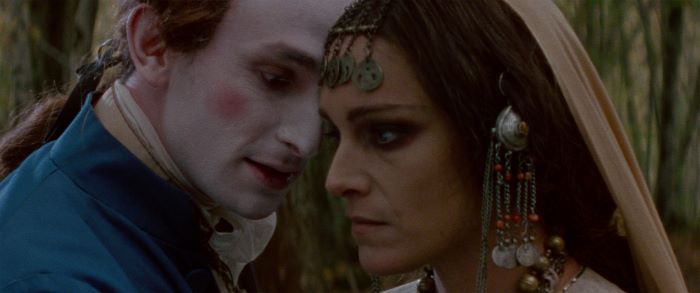
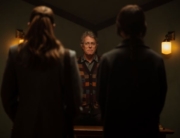

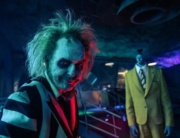
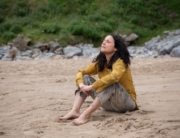
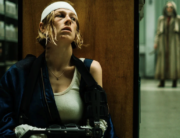
Leave A Comment